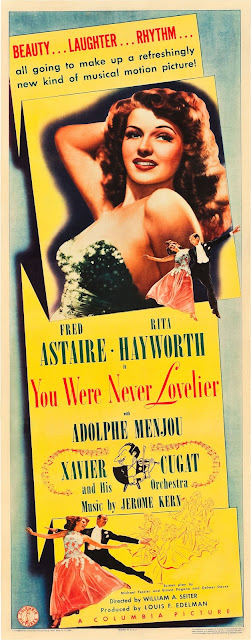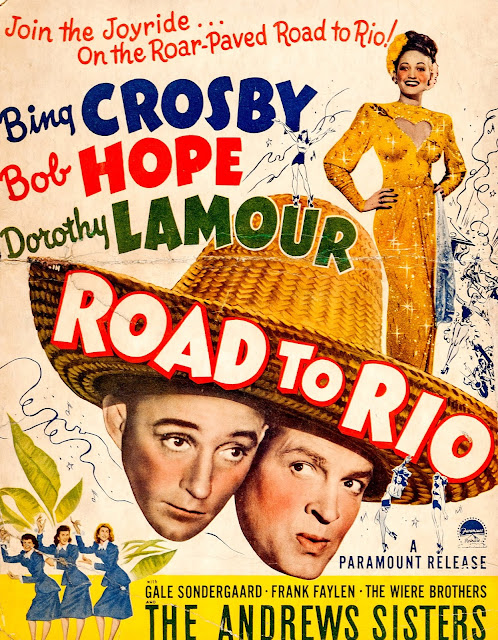What the Code Means to Me

Some months ago, I was asked by Pure Entertainment Preservation Society to contribute to their ongoing series "What the Code Means to Me." Because PEPS' mission is to honor the legacy of the Production Code and Joseph Breen, this particular series is about explaining how you feel about the Code and its influence. To read more about "What the Code Means to Me" and to check out what others have had to say, click here.
__________________
There are a million things that make classic Hollywood the incredible and unique period that it is. We can all agree that we will never see the likes of it again, but not everyone agrees on just what it was that made classic Hollywood special. For example, the studio system. Some people believe that it was a crazy, manipulative means of controlling actors, directors, etc. and that it stifled creativity. Others, however, argue that the studio system was a major reason why the Golden Age of Hollywood earned its name.
Another source of contention is the Production Code, also known as the Hays Code. In my opinion, the Code, just like the studio system, is a complex thing that had its pluses and its minuses. For starters, I'm not entirely convinced that some of its mandates were really necessary. Even the people who made films during this time thought it was silly to force married characters to sleep in separate beds or to make actors like Esther Williams cover their belly buttons as if it was the most suggestive image in the world.
Although I often roll my eyes at stories of the Hays Office's censorship, I can't ignore that the Code made classic Hollywood into the era that I adore. Because you couldn't depict sex and gore (among other things), filmmakers had no choice but to be inventive. They had to go beyond the obvious, and because of that, a different kind of cinematic language was born. When you watch a Code film, you become a spectator in a way that you can't be with today's films. You learn to pick up on hints and to read between the lines. After a while, it's like your perspective has been transported back to the 20th century. You develop an empathy and an understanding that enables you to really sink your teeth into what our cinematic history has to offer.
Sometimes I wonder what old Hollywood would be like without the Code. How would we remember these films? What would be the legacies of filmmakers like Billy Wilder or Alfred Hitchcock? How would the Code's absence change the persona of, say, Marilyn Monroe or Audrey Hepburn? These are huge questions, and I'm not sure I know the answers. What I do know is that the Code, for better or for worse, became an integral part of moviegoers' lives. What you see on the screen matters, even if you don't realize it. Filmic representations influence how we feel and what we think, and over 50 years later, the Code still has a hand in that.
Part of why I have so much trouble with many modern films is the lack of imagination. Classic Hollywood has shown me the possibilities of cinema and of creativity. This era of filmmaking speaks to me in a way that no other era could, and while there are several factors to explain that, I can't deny the impact that the Code has had on me and if you've ever been shocked, thrilled, frightened, or amazed by a Code film, it's influenced you, too.










Dear Michaela,
ReplyDeleteThis is a great article! It's really wonderful! I truly appreciate the thought and attention you put into crafting these thoughts. I republished it on my website here: https://pureentertainmentpreservationsociety.wordpress.com/2019/08/28/what-the-code-means-to-me-june-what-the-code-means-to-me-by-michaela/.
By the way, you get to choose the topic for a future Breening Thursday article on our website! It definitely won't be tomorrow's article. It will probably be the first Breening Thursday in September. See the following article for guidelines on which films are eligible for breening: https://pureentertainmentpreservationsociety.wordpress.com/2019/03/24/suggestions-for-future-breening-thursday-topics/.
Did I invite you to our "Phantom of the Opera Blogathon" in September? If not, you can see the announcement here: https://pureentertainmentpreservationsociety.wordpress.com/2019/08/14/its-here-the-phantom-of-the-opera-blogathon/.
Thank you, Michaela!
Yours Hopefully,
Tiffany Brannan
Thank you! I'm glad you enjoyed it.
DeleteOh, interesting! I looked everything over and it doesn't look like you have done The Thin Man yet, which could be fun. A second option could be the Doris Day musical The Pajama Game.
I'm not much of a fan of The Phantom of the Opera, but I appreciate the invite and I hope it's a success!